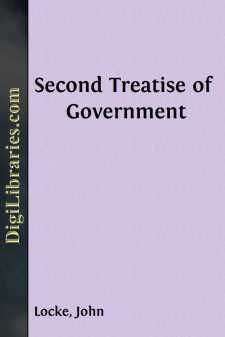Categories
- Antiques & Collectibles 13
- Architecture 36
- Art 48
- Bibles 22
- Biography & Autobiography 813
- Body, Mind & Spirit 142
- Business & Economics 28
- Children's Books 17
- Children's Fiction 14
- Computers 4
- Cooking 94
- Crafts & Hobbies 4
- Drama 346
- Education 46
- Family & Relationships 57
- Fiction 11829
- Games 19
- Gardening 17
- Health & Fitness 34
- History 1377
- House & Home 1
- Humor 147
- Juvenile Fiction 1873
- Juvenile Nonfiction 202
- Language Arts & Disciplines 88
- Law 16
- Literary Collections 686
- Literary Criticism 179
- Mathematics 13
- Medical 41
- Music 40
- Nature 179
- Non-Classifiable 1768
- Performing Arts 7
- Periodicals 1453
- Philosophy 64
- Photography 2
- Poetry 896
- Political Science 203
- Psychology 42
- Reference 154
- Religion 513
- Science 126
- Self-Help 84
- Social Science 81
- Sports & Recreation 34
- Study Aids 3
- Technology & Engineering 59
- Transportation 23
- Travel 463
- True Crime 29
An Essay Concerning Humane Understanding, Volume 2 MDCXC, Based on the 2nd Edition, Books 3 and 4
by: John Locke
Description:
Excerpt
CHAPTER I.
OF WORDS OR LANGUAGE IN GENERAL.
1. Man fitted to form articulated Sounds.
God, having designed man for a sociable creature, made him not only with an inclination, and under a necessity to have fellowship with those of his own kind, but furnished him also with language, which was to be the great instrument and common tie of society. Man, therefore, had by nature his organs so fashioned, as to be fit to frame articulate sounds, which we call words. But this was not enough to produce language; for parrots, and several other birds, will be taught to make articulate sounds distinct enough, which yet by no means are capable of language.
2. To use these sounds as Signs of Ideas.
Besides articulate sounds, therefore, it was further necessary that he should be able to use these sounds as signs of internal conceptions; and to make them stand as marks for the ideas within his own mind, whereby they might be made known to others, and the thoughts of men's minds be conveyed from one to another.
3. To make them general Signs.
But neither was this sufficient to make words so useful as they ought to be. It is not enough for the perfection of language, that sounds can be made signs of ideas, unless those signs can be so made use of as to comprehend several particular things: for the multiplication of words would have perplexed their use, had every particular thing need of a distinct name to be signified by. [To remedy this inconvenience, language had yet a further improvement in the use of GENERAL TERMS, whereby one word was made to mark a multitude of particular existences: which advantageous use of sounds was obtained only by the difference of the ideas they were made signs of: those names becoming general, which are made to stand for GENERAL IDEAS, and those remaining particular, where the IDEAS they are used for are PARTICULAR.]
4. To make them signify the absence of positive Ideas.
Besides these names which stand for ideas, there be other words which men make use of, not to signify any idea, but the want or absence of some ideas, simple or complex, or all ideas together; such as are NIHIL in Latin, and in English, IGNORANCE and BARRENNESS. All which negative or privative words cannot be said properly to belong to, or signify no ideas: for then they would be perfectly insignificant sounds; but they relate to positive ideas, and signify their absence.
5. Words ultimately derived from such as signify sensible Ideas.
It may also lead us a little towards the original of all our notions and knowledge, if we remark how great a dependence our words have on common sensible ideas; and how those which are made use of to stand for actions and notions quite removed from sense, have their rise from thence, and from obvious sensible ideas are transferred to more abstruse significations, and made to stand for ideas that come not under the cognizance of our senses; v.g. to IMAGINE, APPREHEND, COMPREHEND, ADHERE, CONCEIVE, INSTIL, DISGUST, DISTURBANCE, TRANQUILLITY, &c., are all words taken from the operations of sensible things, and applied to certain modes of thinking....



